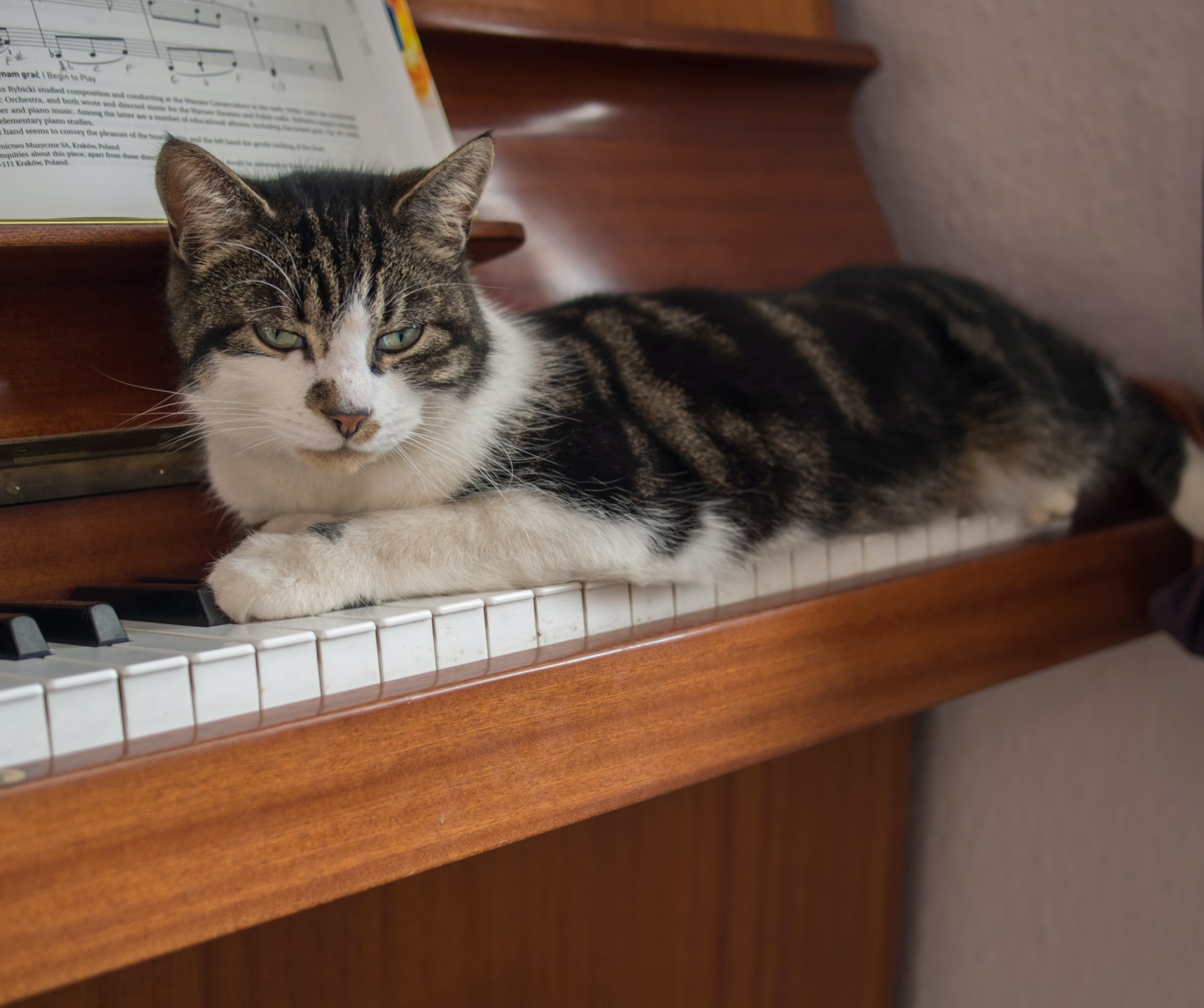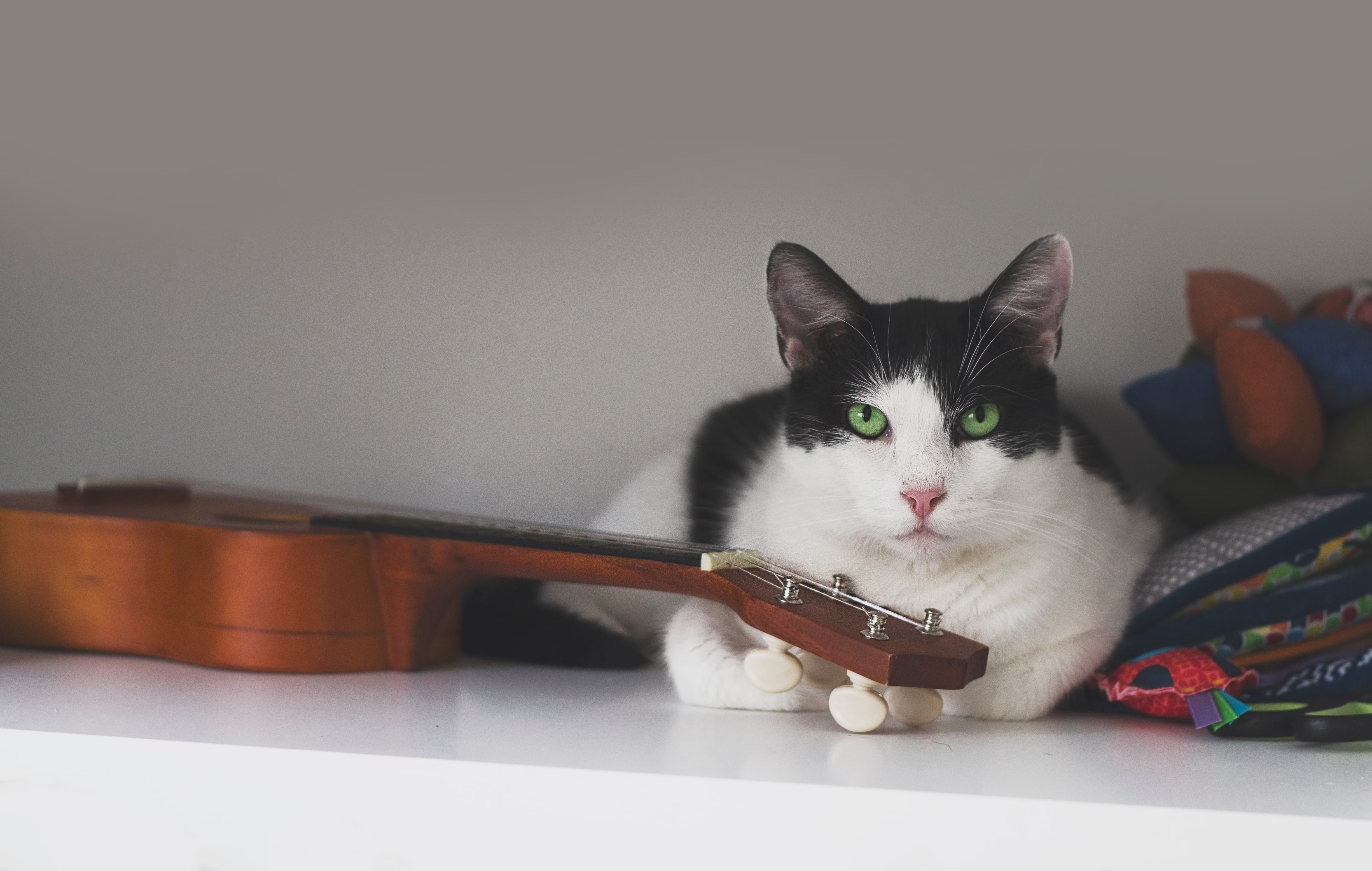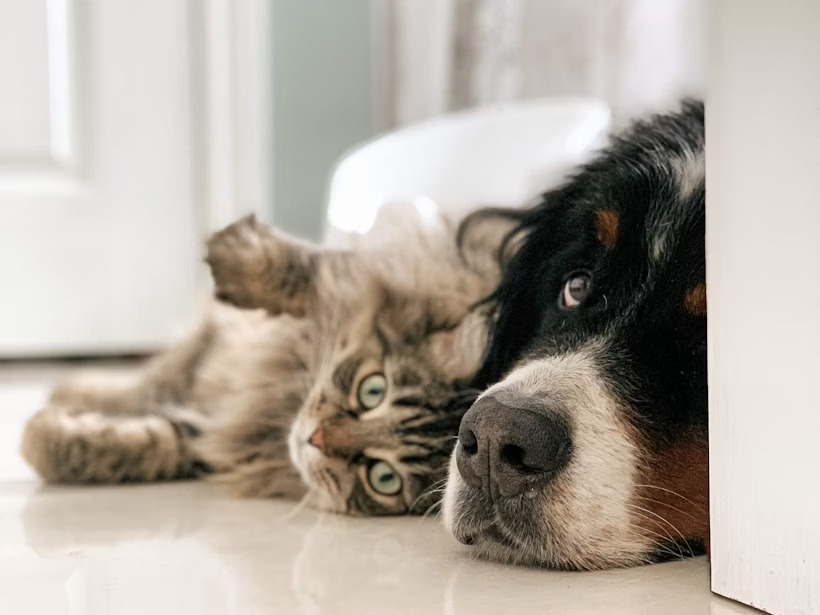Music can pump you up or calm you down. It can set the mood for a party, road trip, or day at the beach. If you’re a human, that is. But what about dogs and cats? Before you spend time making a perfect (purrfect?) playlist for your furry friend, get the scoop on their musical preferences.

Music and dogs
Over the years, researchers have looked into what kind of music, if any, dogs enjoy. Why does it matter? Because many people wonder if music is a good tool for pups that experience separation anxiety, noise phobias, or struggle in stressful environments like dog shelters. And the good news is, evidence suggests that dogs do respond well to music—as long as it’s the right type.
In one study, researchers exposed shelter dogs to classical and heavy metal music. The dogs that listened to classical music were more relaxed and barked less. In contrast, the heavy metal group appeared more agitated and anxious. Another study conducted by the Scottish SPCA and the University of Glasgow exposed dogs to a wider range of music types. They found that dogs that listened to soft rock and reggae had the lowest stress levels.
Apparently, the tempo of the music is a key factor in its ability to relax dogs, with 50-60 beats per minute being the sweet spot. So if your goal is to use music to help an anxious dog stay calm when you’re not at home, skip the hard stuff and opt for some chill tunes instead.
However, if your goal is to use music to engage your dog in a singalong, wind instruments like saxophones and clarinets may be your best bet. These instruments are most likely to inspire dogs to howl, possibly because the sounds are similar to dog howls in the wild. Just don’t expect your pup to match your pitch. Scientific analysis suggests dogs don’t like to produce the same notes when howling in a pack and intentionally change their tone to be different. Just something to keep in mind when you’re forming the family band.
If reggae and sax solos aren’t your thing, you can still share your love of music with your dog. Even if your pup doesn’t share your musical taste, they’ll probably enjoy listening to tunes with you. After all, it’s a chance to hang out with their favorite human.

Music and cats
It probably won’t come as a surprise that cats are a bit pickier when it comes to music. They do like music, but only if it’s made especially for them.
Psychologists from the University of Wisconsin hypothesized that for cats to enjoy music, it needs to mimic the frequency ranges and tempos that cats use to communicate. In their studies, cats showed no interest in the two pieces of human music they played but responded to tracks created specifically for their species.
What does cat-specific music sound like? For one thing, it’s an octave or two higher than human voices, to better match the vocalizations that cats use. It might include noises and beats similar to a cat purring or a kitten suckling milk. Other cat tunes use chirping sounds to mimic birds in the wild. So, not exactly dance music. But cats love it.
In a study published in Applied Animal Behavioral Science, researchers found that while cats showed no reaction to human music, they became excited when the cat-specific music started up. Some even started rubbing up against the speakers—the ultimate sign of approval! Another study in the Journal of Feline Medicine and Surgery found that cats that listened to cat-specific music while at the veterinary clinic showed reduced signs of stress compared to cats that listened to human music or no music at all. That’s great news for cats that get anxious on trips to the vet. Maybe a little cat-friendly music in the exam room can help put them at ease while they receive their regular veterinary care.
So what does all this mean for pet parents who want to relax with their cat and listen to music? You can buy some cat-specific music online (who knows, you may find you enjoy it too). Or you can play your favorite tunes. Your cat probably won’t respond positively to your choices, but they won’t react poorly either. Most likely, cats will just ignore it altogether. And that’s kind of perfect. For you, listening to music with your cat is like hanging out with a friend that always lets you pick the songs. And your cat will get to focus on what they do best: chilling with their people.




